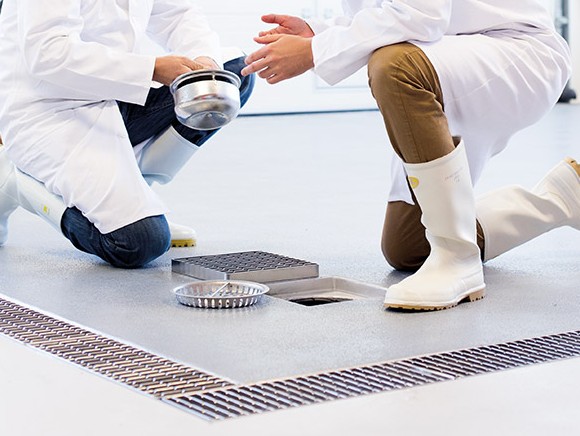
The food industry cannot escape potentially hazardous situations: temperature, fluids and fats create risks with ease. However, many of these can be avoided.
Each producer has a HACCP protocol for food-safe production, which contains its own cleaning procedure for equipment and spaces. Unfortunately, drainage is an aspect that often does not get the highest priority in practice, yet installing the proper floor with the right drainage is something that is best done only once and done right.
Very few drainage systems were well thought out in their design and in turn, were not implemented as best as they could have been. In the best cases, this leads to unnecessarily high costs for cleaning and maintenance. However, it may also result in contamination. If the drainage system is not designed, maintained or cleaned properly, bacteria such as Listeria and Salmonella can grow undisturbed. This results in production departments, and sometimes even entire businesses, shutting down.
Despite HACCP standards and cleaning protocols, cleaning is sometimes executed too quickly. All the dirt and grime are rinsed away into the drain or sink. However, the floor and work area can only really be clean if the drainage is clean as well. Be sure that the floor slopes enough towards to the drains and sinks, prevent puddles of water from forming, and clean and disinfect everything thoroughly. The combination of the best workplace floors and proper drainage prevents issues in the workspace. This is why ACO and RUYS floors have been working together for years to relieve the food industry of these concerns.
De Vegetarische Slager (The Vegetarian Butcher) suffered from the problems mentioned above. At its new production location, Ruys installed the right floors, right away (including Margia Granite and Margia Stone floors). The drainage was provided by ACO. This will allow the location to continue making safe products for years to come.
Source: © Ruys Vloeren